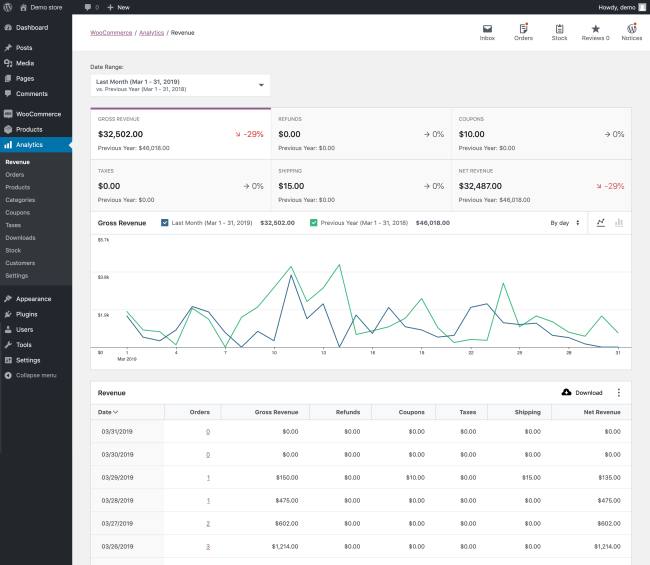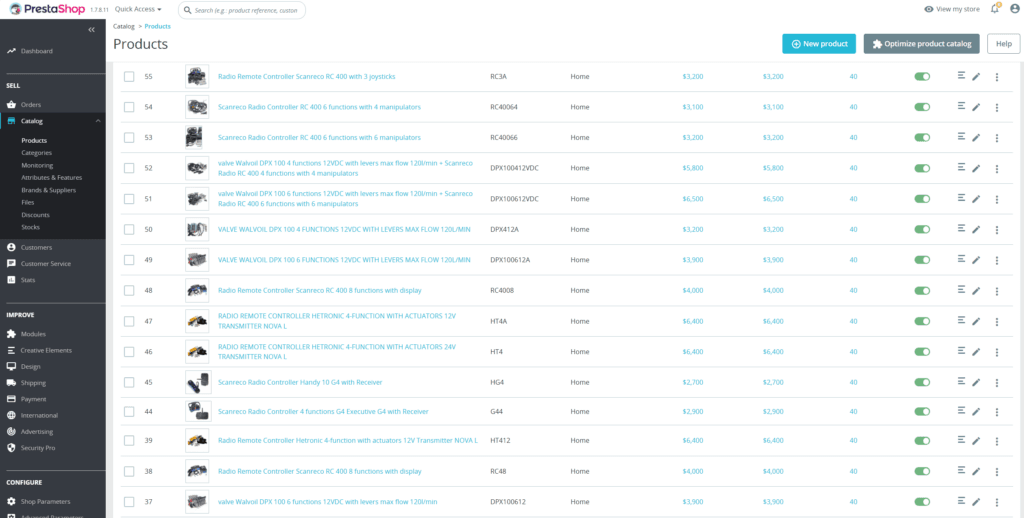In recent years, eCommerce has become an essential part of the business world. Many entrepreneurs and small business owners wonder which platform is best for launching their online store. With its strong reputation as a blogging platform, people often ask, can WordPress be used for ecommerce? In this post, we’ll explore the benefits and limitations of using WordPress with WooCommerce for online stores, and discuss why some experts alternatively recommend PrestaShop as a dedicated eCommerce solution.
WordPress with WooCommerce: Flexibility and Ease of Use
WordPress is one of the world’s most popular content management systems (CMS), initially known as a platform for blogging and informational websites. With its extensive library of plugins and themes, WordPress can be customized to fit a variety of needs, from simple blogs to fully functional eCommerce stores. WooCommerce, a plugin developed specifically for WordPress, enables users to transform their WordPress sites into online stores with features like product listings, shopping carts, and payment options. This solution is particularly appealing for small to medium-sized businesses due to its user-friendly interface, flexibility, and affordability. However, it’s important to remember that WordPress, with WooCommerce as an add-on, wasn’t designed solely for eCommerce, which means that achieving the best performance may require additional optimization efforts.
WordPress for eCommerce: Pros and Cons
Pros of Using WordPress for eCommerce
- User-Friendly for Beginners
WordPress is known for its ease of use, especially for those who are just starting in the online world. With an intuitive dashboard and a vast library of plugins, beginners can get started relatively quickly. - Extensive Plugin Library
WordPress offers thousands of free plugins, including the popular WooCommerce plugin for eCommerce. Users can extend the functionality of their site with plugins for marketing, payments, product displays, and much more. - Supportive Community and Forum Assistance
WordPress has a huge community, so users can find help on forums, tutorials, and documentation. This network provides great support, especially for common issues or questions about customization. - Customizable Page Design with Elementor
Elementor, a popular drag-and-drop page builder, allows users to design pages without knowing code. This flexibility is a big advantage for business owners who want full control over their store’s look and feel. - Decent Performance with Optimization Options
While WordPress wasn’t initially built for eCommerce, its performance can be reasonable for small to medium-sized online stores when optimized correctly.
Cons of Using WordPress for eCommerce
- Primarily a Blogging Platform
WordPress started as a blogging engine, and WooCommerce is essentially a plugin that adapts WordPress for eCommerce. This can be limiting compared to platforms built specifically for online stores. - Basic Knowledge of PHP and MySQL Required
To handle troubleshooting and customization effectively, it’s beneficial to have a basic understanding of PHP and MySQL. This can be a hurdle for users without coding experience. - Challenges in Optimization
WordPress, being multi-functional, may not provide the best performance without careful optimization. For instance, WooCommerce sites often need additional plugins or tweaks to achieve optimal speed and performance. - SEO Complexity
WordPress requires extra support for eCommerce SEO, though plugins like RankMath and Yoast SEO can help streamline the process. These plugins are excellent tools, but they add an extra layer of configuration that may not appeal to all users
PrestaShop: A Dedicated Solution for eCommerce
PrestaShop is an open-source platform created specifically for eCommerce. Unlike WordPress, which adapts to eCommerce through plugins, PrestaShop is built from the ground up with online selling in mind. This focus on eCommerce makes it highly optimized for online stores, providing strong built-in features for managing products, inventory, SEO, and payment integrations without requiring additional plugins. PrestaShop is a solid choice for businesses that need a powerful, customizable platform capable of handling complex store configurations, including multi-store setups and specialized integrations. However, this enhanced capability comes with a slightly higher learning curve, especially for users unfamiliar with web development. For those with technical skills or access to developer support, PrestaShop offers a comprehensive solution designed for growth and scalability.
Why PrestaShop May Be a Better Fit for eCommerce
For businesses that want a more streamlined and specialized eCommerce platform, PrestaShop offers distinct advantages.
Pros of Using PrestaShop for eCommerce
- Built Specifically for Online Stores
Unlike WordPress, PrestaShop is designed solely for eCommerce. This specialized focus means it’s optimized to handle product catalogs, payments, shipping, and more. - SEO-Ready Out of the Box
PrestaShop provides strong SEO capabilities without the need for extra plugins. This gives users a head start on ranking well in search engine results. - Rich Integration Options
PrestaShop offers a variety of integrations with ERP systems, wholesalers, and tools like Baselinker, making it a powerful choice for managing a complete eCommerce operation. - High Customizability and Support for Multistore Management
PrestaShop supports complex configurations, allowing for multi-store setups and in-depth customization, ideal for businesses with diverse product lines or international stores. - Regular Updates and Security Fixes
PrestaShop has a robust security and update schedule, providing peace of mind for store owners who prioritize data protection.
Cons of Using PrestaShop for eCommerce
- Higher Learning Curve
PrestaShop can be challenging for those unfamiliar with HTML, CSS, PHP, and JavaScript. While page builders like Creative Elements (a fork of Elementor designed for PrestaShop) can help, new users may still find it harder to get started. - Troubleshooting Module Issues
Unlike WordPress, troubleshooting problems with PrestaShop modules can require a deeper technical understanding or additional support, which can slow down quick fixes. - Potentially Higher Maintenance Costs
For users lacking the technical knowledge, managing a PrestaShop store could incur additional costs for support or development services.
Conclusion: Choosing the Right Platform for Your Business
So, can WordPress be used for eCommerce? Absolutely. WordPress, with the WooCommerce plugin, offers a flexible, beginner-friendly solution for small to medium-sized stores. However, it may not be as efficient as platforms like PrestaShop, which are designed specifically for online retail. For those looking to scale or seeking a system optimized for eCommerce, PrestaShop could be a better alternative, especially if they have the technical resources to manage it effectively.
Ultimately, the decision comes down to the specific needs of the business. WordPress with WooCommerce might be ideal for those looking to launch quickly with minimal technical setup. In contrast, PrestaShop is a solid choice for business owners ready to invest in a powerful, specialized eCommerce platform.





